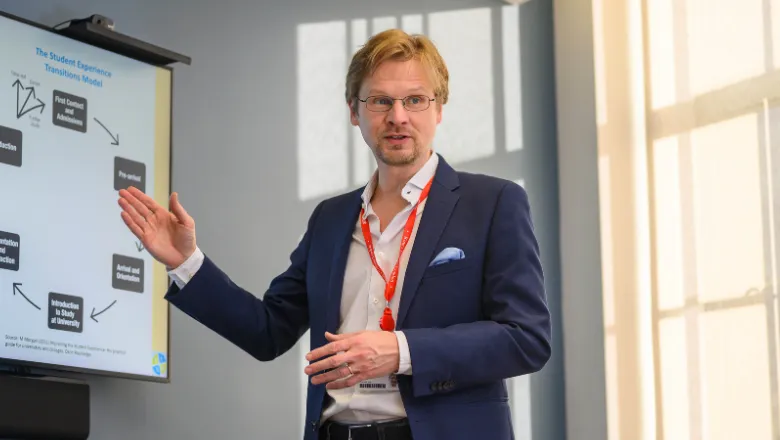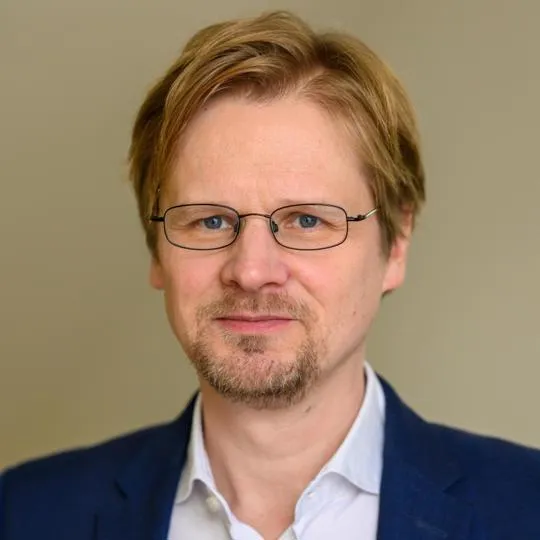‘I am honoured to have been elected to the Academia Europaea. The Academy is a welcome example of sustained scholarly collaboration transcending national and political boundaries. I endorse the Academy’s mission by actively participating in interdisciplinary and transnational research involving several European countries (Italy, Switzerland and the United Kingdom) and by aiming to bring together insights from different fields such as history, philology, theology and literature.’
Dr Stefan Bauer, Lecturer in Early Modern History
16 May 2023
Stefan Bauer elected to Academia Europaea
Dr Stefan Bauer has been elected as a new member of Academia Europaea, a European association for leading experts in science, education, and research.

Dr Stefan Bauer has been elected to the Academia Europaea as a member of the History and Archaeology section.
Dr Bauer is a Lecturer in Early Modern History in the Department of History. He is an intellectual and cultural historian. His research interests cover humanism, religious polemic, censorship, fakes and forgeries. Dr Bauer is a Fellow of the Royal Historical Society and Co-Editor of ‘Lias: Journal of Early Modern Intellectual Culture and its Sources’. Dr Bauer has taught and held positions at Warwick, York, the London School of Economics, the German Historical Institute in Rome and the Italian-German Historical Institute in Trent. Bauer is a Privatdozent at the University of Fribourg, Switzerland; Honorary Research Fellow at the University of Warwick; Research Associate at the Centre for Renaissance and Early Modern Studies, University of York; and a Fellow of the Higher Education Academy. In 2021, Dr Stefan Bauer was elected to the Council of the Royal Historical Society.
Academia Europaea is a European non-governmental association founded in 1988 to promote European scholarship and research, influence governmental decisions, and encourage interdisciplinary and international research throughout Europe. It has more than 5000 members, including leading experts from the physical sciences and technology, biological sciences and medicine, mathematics, the letters and humanities, social and cognitive sciences, economics and the law. 83 members of Academia Europaea are Nobel Prize laureates.
Members are accepted to Academia Europaea by invitation. The process of election involves nomination from two members and a decision by the Council of the Academia. Each nominated individual is peer assessed to ensure they show sustained academic excellence in their field before being elected as a member of Academia Europaea.

